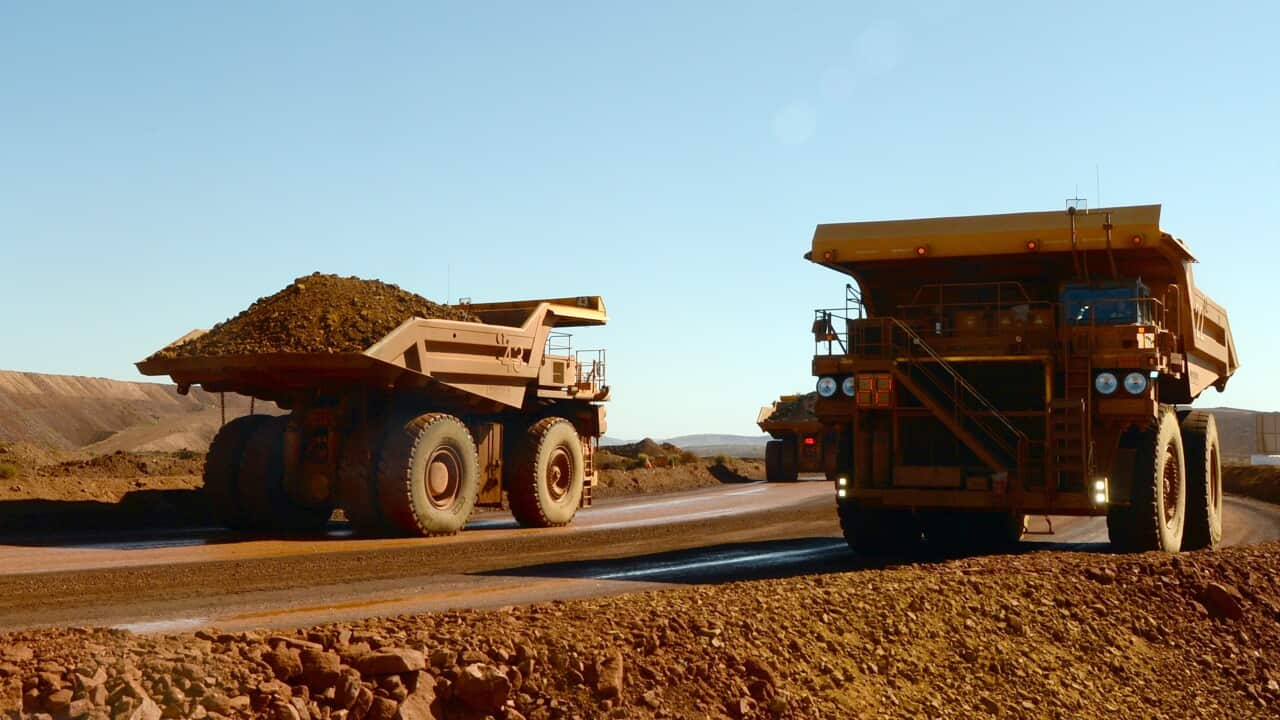This article contains references to sexual assault/abuse.
Western Australia's multibillion-dollar mining industry has failed to protect women from predatory sexual behaviour, an inquiry has found.
A committee chaired by Liberal MP Libby Mettam delivered its findings on Thursday after almost a year of investigations, launched after a number of women came forward to police detailing claims of sexual assaults at major WA mines.
Ms Mettam told the WA parliament she was shocked and appalled at the scale of the problem, saying victims had faced targeted violence, stalking, grooming and threats to their livelihoods.
And she warned the industry needed to do more to force perpetrators out after hearing evidence some had merely changed work sites or gained re-employment within the sector.
"It is completely inexcusable and simply shocking that this could be taking place in the 21st century in one of the state's most lucrative industries," she said.
"This represents a failure of the industry to protect its workers and raises real questions about why the government was not better across this safety issue."
The committee has recommended the mining sector should explore options for a register of sexual offenders which could resemble the working with children card.
It also recommends the establishment of a government forum to hear, document and acknowledge the experiences of victims.
This process could explore opportunities for redress such as formal apologies and appropriate compensation.
Labor backbencher and committee member Mark Folkard told parliament in an emotional speech he believed this should take the form of a royal commission.
"I am of the belief we have serious sexual predators hidden within the sector. They have been there for many years and still go unchallenged," he said.
The report criticised the performance of WA's mining safety regulator, the Department of Mines, Industry Regulation and Safety.
While DMIRS said it had only received 22 reports of sexual assaults on mine sites over seven years, WA Police reported having investigated 23 incidents in just two years.
"It is difficult to believe the regulator could have accepted this level of reporting as reflecting the true situation on the ground," Ms Mettam said.
The inquiry found that DMIRS should overhaul its practices and implement an effective and comprehensive data management system. Ms Mettam paid tribute to the bravery of victims who had disclosed their experiences.
One woman was told by her supervisor after a near-miss incident while driving a haul truck that he would make the investigation disappear if she had sex with him.
She was told she would have to "get on her knees if she wanted to get her shirt", meaning a permanent job with the mining company.
Another woman was knocked unconscious in her donga (accommodation) and woke to find her jeans and underpants around her ankles.
The inquiry heard evidence of women being stalked and hassled with provocative photo requests. Pilbara mining giants Rio Tinto, BHP and Fortescue Metals Group were among the companies to publicly front the committee.
All three confirmed they had sacked workers over assaults and harassment. They have since rolled out safety measures including tougher alcohol limits, enhanced reporting mechanisms and better CCTV and lighting.
Just days prior to the report, the Gina Rinehart-owned Roy Hill confirmed it had received a report of a woman being sexually assaulted by a fellow contractor at one of its sites.
A report by the Human Rights Commission in 2020 found that 74 per cent of women in mining had experienced harassment in the five years prior.
The Minerals Council of Australia said the industry was committed to eliminating sexual harassment and would continue to progress with making further safeguards.
If you or someone you know is impacted by sexual assault, call 1800RESPECT on 1800 737 732 or visit . In an emergency, call 000.












